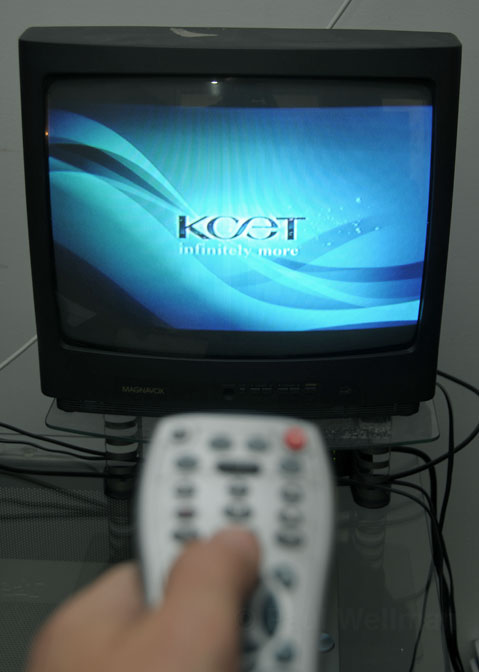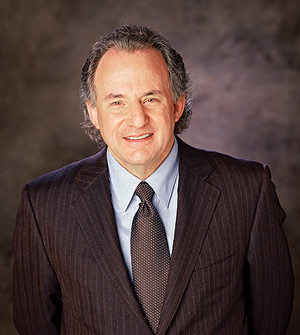Stay Tuned for a Switch
KCET Drops Beloved Lineup of PBS Programming

Local PBS fans can breathe easier as it turns out most Santa Barbara residents will still be able to watch their favorite shows, even in the wake of failed contract negotiations between PBS and carrier KCET. In a major switcheroo, affiliate KOCE will bring the popular lineup — with programs like Frontline and Masterpiece as well as Sesame Street and Curious George — to South Coast Cox customers instead of KCET, which on January 1 will sever ties with PBS’s family of networks.
While the news comes as relief to many in the area who thought they would simply be out of luck when KCET and PBS announced the upcoming end of their 40-year relationship, all involved organizations are still ironing out the remaining operational wrinkles. Cox, for instance, isn’t sure on which channel Orange County-based KOCE will broadcast or if hi-def will be available. Those issues — in addition to whether Cox will continue to carry KCET and its new, non-PBS programming — will be worked out before the move, said a Cox spokesperson.

The way it looks right now, 60-70 percent of Santa Barbara’s PBS watchers will notice little or no difference in their viewing experience come January 1, said KOCE president and CEO Mel Rogers, explaining over-the-air (think rooftop antennas) and satellite customers may have to wait a month or two longer for KOCE’s signal to reach their homes.
Rogers said his station will conduct a major overhaul of its current program schedule, adding many more PBS shows to its lineup and getting rid of a number of its locally focused shows. In short, Rogers went on, the “vast majority” of PBS programs currently offered in Santa Barbara County will remain the same when KOCE takes over, with the fates of a few series — Point of View, for instance — hanging in the balance due to limited air time.
The rift between PBS and KCET, according to PBS spokesperson Anne Bentley, had to do with KCET’s insistence that it begin paying less than other member stations. She said PBS tried to work diligently to keep the station in its 360-member roster, but her company only had so much wriggle room as every member station pays according to an agreed-upon dues formula created by a board of representatives. (One of the PBS board members, Bentley noted, is KCET president and CEO Al Jerome.) When an impasse was reached, KCET — based in Los Angeles — had no choice but to withdraw its membership.

To hear Jerome tell it, though, the station’s decision to break ties — handed down unanimously by its board of directors — came not after thwarted requests for special treatment, but after PBS unfairly hiked his station’s fees. In a statement posted on KCET’s Web site (no representative could be reached directly for comment), Jerome claims the station’s PBS dues were recently increased by 40 percent “because of its extraordinarily successful fundraising effort on behalf of A Place of Our Own/Los Niños en Su Casa,” a series based on childcare. “The dues,” wrote Jerome, “were then frozen at the highest rate in the station’s history just as the economy tumbled, leading to decreases in contributions from viewers, corporate underwriting, and foundation grants.”
PBS spokesperson Anne Bentley explained to The Independent that while KCET’s dues did increase because it received a large grant for programming, KCET’s federal funding also went up, which can be used to pay for PBS fees. “Their statement is misleading,” she said in an email. Bentley wouldn’t discuss dollar figures or other details of the contentious talks, remarking only that the disagreement is “old news” at this point. She said she’s just happy another station stepped up to the plate to pipe PBS into Santa Barbara homes.
KCET’s decision to split seems rooted not only in complaints over cash but also in a desire to take the station in a completely different direction. Come January 1, it will become the largest independent public TV station in the country. In multiple statements peppered throughout its Web site — which is now conspicuously void of any PBS logos even though the station will remain a member through December 31 — Jerome and others express a desire for “greater program flexibility” and to “provide a platform for new and diverse creative voices.”
Some of these voices, reported the Los Angeles Times earlier this month, will take the form of Asia-focused news, cooking and science programs from Japan and Canada, and reruns of British sitcoms and dramas. But in addition to featuring these decidedly nonlocal shows, KCET plans on hyping its Los Angeles-based talent as well. In an online comment, made in response to the worry and oftentimes outright anger voiced by longtime KCET watchers, Jerome wrote, “Let’s not forget that we are in Los Angeles — the creative capital of the world — so we have access to tremendous talent. This is also a very diverse community with so many important voices that need to be heard. We hope you’ll give us a chance.”
It’s this L.A.-centric thinking that broadcast industry insiders say shaped KCET’s controversial decision. Baffled by the fact that a station would burn bridges with one of the most trusted media brands in the country that “enjoys a stellar reputation and boasts an unparalleled lineup of shows,” sources say KCET is known for embracing a “Hollywood” mentality that sees itself above outside influence and direction. The board is composed of many L.A.-based television producers who reportedly feel they can strike out on their own. Said one source who requested anonymity: “They have this idea that they’re already a big deal and can do better without PBS.”



